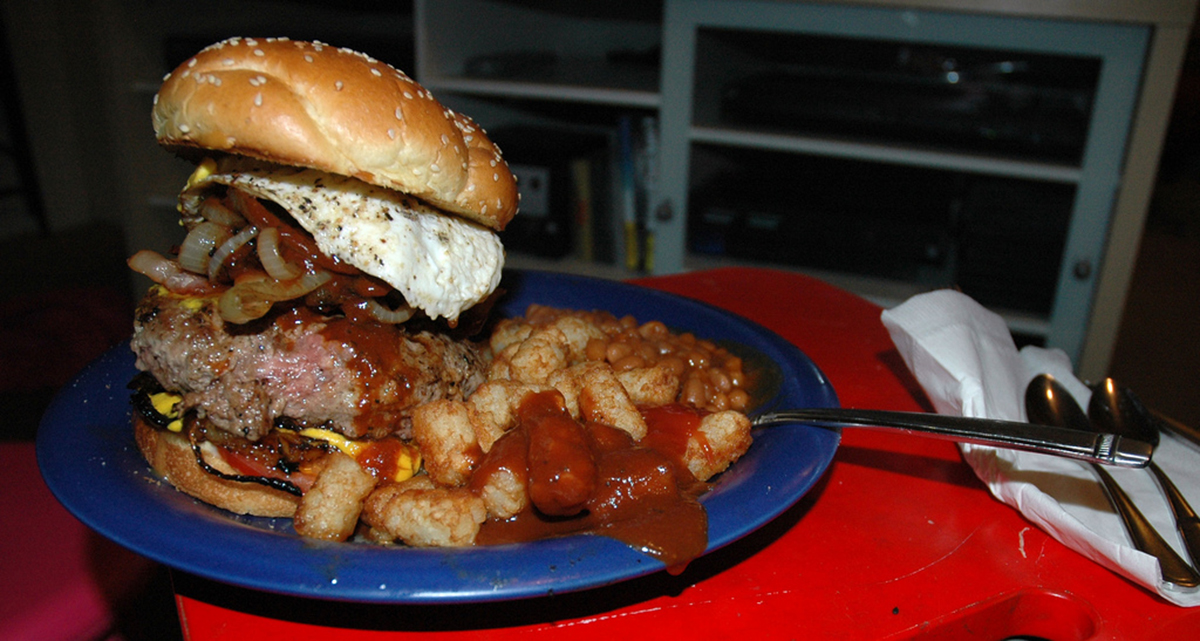Table of Contents
There are lots of conditions that can cause your belly to bulge out. Digestive tract is a complex system; several muscles and enzymes play role in the proper functioning of this system.

Abdominal swelling is a common symptom and may occur with or without pain. Listed below are some conditions that may also facilitate outward protrusion of the abdomen.
Indigestion
Indigestion, also called dyspepsia, is usually associated with conditions such as gastrointestinal reflux disease, IBS, ulcers or gallbladder disease. Indigestion causes feelings of burning or heaviness in the upper part of the stomach during or after a meal.
Symptoms associated with dyspepsia include abdominal pain, nausea and belching. Shivering and vomiting may also occur. Abdominal swelling is seen in severe cases.
Treatment is usually based on dietary modifications and lifestyle changes. It is advised not to consume spicy foods and drink sufficient amounts of water. Smoking and alcohol should also be stopped for a certain period of time as it may worsen the symptoms.
Overeating
This is one of the physiological causes of abdominal swelling. Overeating results in the stomach producing more acids to digest the extra food consumed, which causes acid reflex and consequent heartburn.
Heartburn, chest pain, and numbness are common symptoms. Other more distressing symptoms such as violent coughing and abdominal discomfort appear when the amount of acid increases.
A controlled diet and change in eating habits is advised as treatment. Some medications may be prescribed according to the condition.
Intestinal Obstruction
Intestinal obstruction is a condition in which there is a complete or partial blockage of the small or large intestine (colon). This restricts the movement of digested food and fluids along the intestines. If not treated in time, the affected part of the intestine may die and may have to be surgically removed.
Symptoms include nausea, vomiting, abdominal pain, cramping, and loss of appetite.
Treatment depends on the severity of the symptoms. Common options are air enemas, stunts and meshes. Surgery is indicated in severe cases.
Gastrointestinal (GI) Infections
Commonly known as food poisoning, GI infections are caused by bacterial, viral or amoebic invasions into the digestive system. This may be caused by unhygienic conditions, undercooked meat, improper preservation of food, and in some cases, exposure of food to toxins.
Intestinal inflammation, nausea, vomiting, cramping, fever, and diarrhea are the symptoms that are usually experienced. Treatment involves keeping yourself hydrated and maintaining the osmotic balance of the body. In case of infection, antibiotics may be administered.
See Also: How to Treat Food Poisoning at Home
Appendicitis
Appendicitis is an inflammation or swelling of the inner lining of the appendix, which may spread to other parts of the intestine. Complications may develop if the appendix ruptures or an abscess develops. This condition usually does not present with abdominal swelling, however, in some cases abdominal swelling may occur.
Causes include infection, blockage of the opening of the cecum, changes in lymphatic tissue that lines the appendix or cancer. Nausea, vomiting, and fever are common symptoms. Treatment generally involves surgery to remove the appendix known as an appendectomy.
Rare Causes
There are some other disorders that rarely present as abdominal swelling. These include:
- Ectopic pregnancy
- Abdominal TB
- Photo courtesy of Holly Lay by Flickr: www.flickr.com/photos/hollylay/14406734266
- Photo courtesy of Marshall Astor by Flickr: www.flickr.com/photos/lifeontheedge/380097789


Your thoughts on this